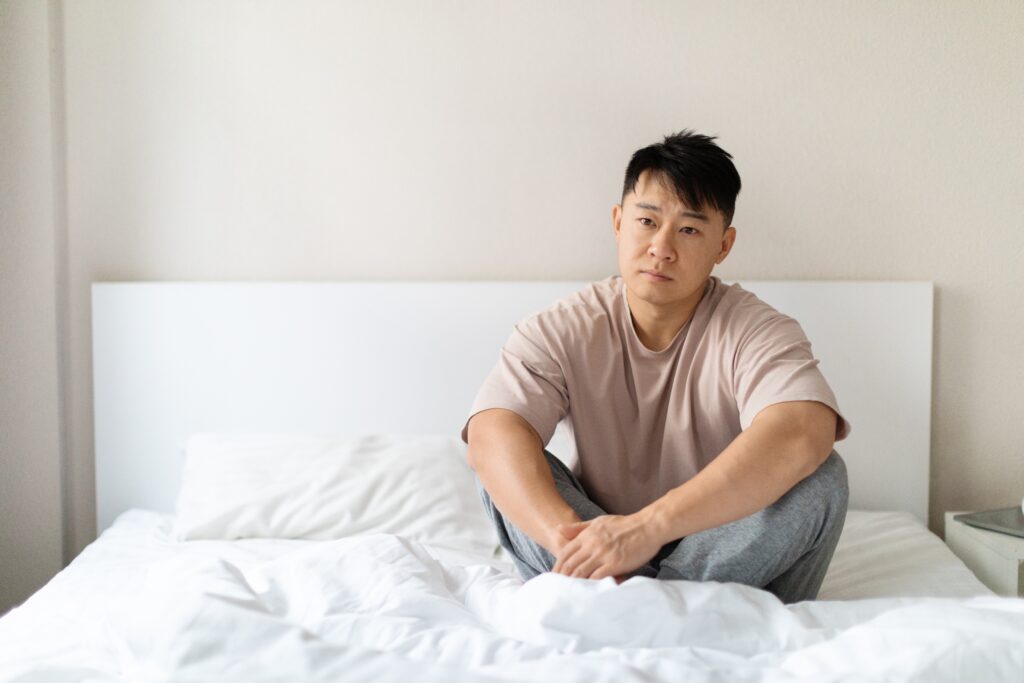Finding the right detox center is an essential first step in recovery. You’ll find plenty of options if you search “detox facilities near me” in Los Angeles. But with so many choices, knowing which one to choose can be hard.
This guide will walk you through the detox process, explain why professional care is so important, and help you narrow your options to find the right treatment center for you.
LGBTQ-affirmative drug detox in Los Angeles. Call us today at (323) 464-2947.
What Is Drug Detox?
Drug detox helps the body clear drugs and alcohol while managing the withdrawal symptoms that arise when substance use stops. Depending on the substance and individual circumstances, detox can take anywhere from a few days to several weeks.
Detox is not just about stopping substance use but doing so safely. Withdrawal symptoms like nausea, anxiety, tremors, and, in severe cases, seizures can make the process both physically and emotionally difficult. On top of that, people often experience intense anxiety or depression as their bodies adjust to life without substances that once masked these feelings.
Medically supervised detox ensures this process is safe and as comfortable as possible. Professional care and evidence-based treatments help manage withdrawal symptoms, reduce the risk of relapse, and prepare people for the next steps in recovery.
While detox focuses on clearing harmful substances from the body, it’s only the beginning of recovery. The real work comes in addressing the root causes of addiction and learning the tools and strategies needed to live a healthy, substance-free life.
What Happens During Drug Detox?
The detox process is tailored to meet each person’s needs but generally follows main stages: evaluation, stabilization, and preparation for further treatment.
1. Evaluation
This first step is about understanding the client’s health and addiction history to build a strong foundation for their care.
- Health Assessment: Medical staff screen for underlying medical conditions and mental health disorders that may impact the detox process.
- History Review: A detailed review of the individual’s substance use, medical history, and psychiatric background helps inform the treatment plan.
- Drug Testing: Blood tests and other screenings measure the levels of substances in the body. This guides decisions on medications and the level of care required.
2. Stabilization
During stabilization, the focus is on safely managing withdrawal symptoms and preventing complications. This phase is often the most challenging part of detox as the body adjusts to the absence of substances.
Symptoms can range from mild to severe, depending on the substance and the individual, and may include nausea, fatigue, insomnia, mood swings, and tremors. In more severe cases, such as with alcohol or benzodiazepine withdrawal, symptoms like seizures or hallucinations can occur.
Medical professionals monitor clients around the clock, using medications to reduce discomfort and stabilize vital signs as needed. Common treatments include:
- Anti-anxiety medications to manage nervousness and agitation.
- Anti-nausea drugs to relieve digestive discomfort.
- Specialized medications like buprenorphine or methadone to safely manage opioid withdrawal.
3. Preparing for Treatment
Once the body is free of harmful substances and withdrawal symptoms are under control, the focus shifts to ongoing treatment and recovery.
During this stage, rehab professionals help clients transition to a long-term rehab program, whether it’s residential care or an outpatient option like a partial hospitalization program (PHP) or intensive outpatient program (IOP). These programs provide continued support to help address the root causes of addiction, such as trauma, stress, or mental health challenges.
Why Professional Drug Detox Is Essential
Detoxing from drugs or alcohol is a critical first step in recovery, but attempting it without professional medical support can be extremely dangerous. Substances like alcohol or benzodiazepines can lead to severe withdrawal symptoms, including seizures, heart complications, or even death.
Professional detox facilities provide a safe, structured environment where medical staff closely monitor withdrawal symptoms, track vital signs, and intervene to prevent serious health complications. They may also prescribe medications to reduce discomfort, stabilize the body, and make detox more manageable.
Beyond physical care, detox centers also offer emotional and psychological support during this vulnerable time. As substances leave the body, clients may experience heightened anxiety, depression, or other mental health challenges. Having compassionate staff on hand can be the key to starting recovery successfully and avoiding relapse.
Why Choose Drug Detox in Los Angeles?
Los Angeles is a leading destination for professional drug detox, offering some of the best resources and facilities in the country. Here’s what sets it apart:
Top-Tier Detox Centers: Los Angeles is home to dozens of cutting-edge facilities that provide innovative, evidence-based treatments tailored to each client’s needs.
Experienced Professionals: These centers are run by professionals who specialize in managing withdrawal symptoms and ensuring clients’ safety throughout the detox process.
Accessible Options: Los Angeles offers many options for those searching for “detox clinic near me” or “medical detox near me,” making it easy to find quality care close to home.
The Importance of LGBTQ-Affirmative Drug Detox
LGBTQ people face unique challenges that can make addiction treatment more complex. Factors like stigma, discrimination, and family rejection often contribute to higher rates of substance use in the community. LGBTQ-affirmative detox programs are designed to address these needs, creating an environment where clients feel understood and supported as they begin their recovery journey.
Safe Spaces for Healing
Detox is an emotional and vulnerable time, and feeling accepted is crucial. LGBTQ-affirmative detox centers provide a judgment-free space where people can heal without fear of discrimination. These inclusive environments prioritize emotional safety, allowing clients to focus on recovery in a supportive space.
Culturally Competent Care
Effective treatment for LGBTQ people requires care that acknowledges their unique experiences. LGBTQ-affirmative programs address challenges like internalized homophobia, minority stress, and trauma, tailoring treatment plans to reflect each client’s personal history and triggers.
A Sense of Community
Being surrounded by others with similar experiences can make a significant difference in recovery. Affirmative detox programs foster connection and mutual understanding, helping clients feel less alone. Many programs also encourage building a supportive, sober community that continues after treatment ends, offering ongoing encouragement and accountability.
Drug Detox Los Angeles at La Fuente Hollywood Treatment Center
With over a decade of experience, La Fuente Hollywood Treatment Center is a premier LGBTQ-affirmative facility. Many of our staff members are in recovery and are part of the LGBTQ community, giving them unique insight and empathy into the challenges our clients face.
Our Los Angeles treatment center offers a range of specialized services, including alcohol detox, prescription drug detox, and recovery programs for substances like meth, heroin, and MDMA.
Take the first step toward a healthier, substance-free life. Contact us today at (323) 464-2947.




